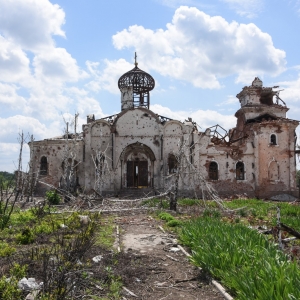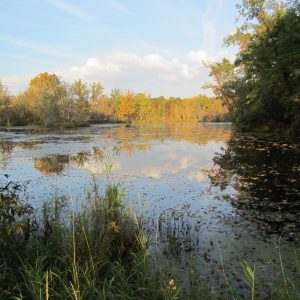Federal Water Tap, November 9: Reclamation Approves California Canal Repair
The Rundown
The Bureau of Reclamation completes an environmental review for fixing a sagging irrigation canal in California’s Central Valley. The Army Corps will suspend a Clean Water Act permit for a petrochemical facility in Louisiana. The speaker of the House discusses Democratic priorities in the next Congress. And lastly, the U.S. Geological Survey plans an extensive study of water quality and availability in the Illinois River basin.
“The climate issue is a big issue for us. It’s also a jobs issue. It is. We can create good paying green jobs, be preeminent in the world in green technologies as we advance it as a health issue, clean air, clean water, as a national security issue to protect the habitat and the resources and prevent some of migration that causes unrest as well as a moral issue.” — Rep. Nancy Pelosi, the House speaker, talking to reporters about Democratic priorities in the next Congress.
News Briefs
Louisiana Plastics Facility
The Army Corps of Engineers will suspend a federal permit for a petrochemical plant in a section of Louisiana known as Cancer Alley, ProPublica reports.
The $9.4 billion plant is proposed for a site along the lower Mississippi River by Formosa Plastics. Objecting to an expected increase in air pollution, environmental groups and local residents sued to block the plant. One of their arguments is that the Army Corps violated the Clean Water Act by allowing wetlands to be destroyed.
The agency said in a court filing that it will review the analysis that supported the permit and will issue a new decision.
Studies and Reports
California Canal Repairs
The Bureau of Reclamation cleared the way for repairs to a canal in California’s Central Valley that has buckled because of too much groundwater pumping and is able to operate at less than half capacity.
Reclamation aims to fix a 33-mile section of the Friant-Kern canal, which uses gravity to provide irrigation water to about a million acres of farmland. The project is estimated to cost about $500 million and is eligible for federal funding, if Congress chooses to appropriate it.
The focus for action is a 33-mile stretch of the 153-mile canal. Thirteen miles of the water-delivery structure will be enlarged by raising the embankments. Twenty miles of the existing canal will be decommissioned and a new segment will be built just to the east.
Most of the damage occurred during California’s recent drought, when surface water was unavailable to farmers. To keep their crops alive, they pumped groundwater, which destabilized the land and caused it to subside. The sinking land pulled the canal down with it, disrupting the gravity-fed flow.
In context: The Fall and Potential Rise of California’s San Joaquin Valley
On the Radar
USGS River Basin Study
The U.S. Geological Survey selected the Illinois River watershed for an intensive hydrological study of water quality and water availability. It is the third river basin selected for the program, following the Delaware and Upper Colorado.
What was appealing about the Illinois River is its mix of upstream urban areas and downstream farmland, the agency said. The basin is troubled by nutrient runoff and algal blooms.
In context: U.S. Water Data, Refreshed Daily
EPA Science Advisory Board Meeting
On November 12, the EPA Science Advisory Board will hold a virtual meeting that is open to the public.
The board will discuss its review of the agency’s draft report on preparing economic analyses of environmental rules.
Federal Water Tap is a weekly digest spotting trends in U.S. government water policy. To get more water news, follow Circle of Blue on Twitter and sign up for our newsletter.
Brett writes about agriculture, energy, infrastructure, and the politics and economics of water in the United States. He also writes the Federal Water Tap, Circle of Blue’s weekly digest of U.S. government water news. He is the winner of two Society of Environmental Journalists reporting awards, one of the top honors in American environmental journalism: first place for explanatory reporting for a series on septic system pollution in the United States(2016) and third place for beat reporting in a small market (2014). He received the Sierra Club’s Distinguished Service Award in 2018. Brett lives in Seattle, where he hikes the mountains and bakes pies. Contact Brett Walton





Leave a Reply
Want to join the discussion?Feel free to contribute!